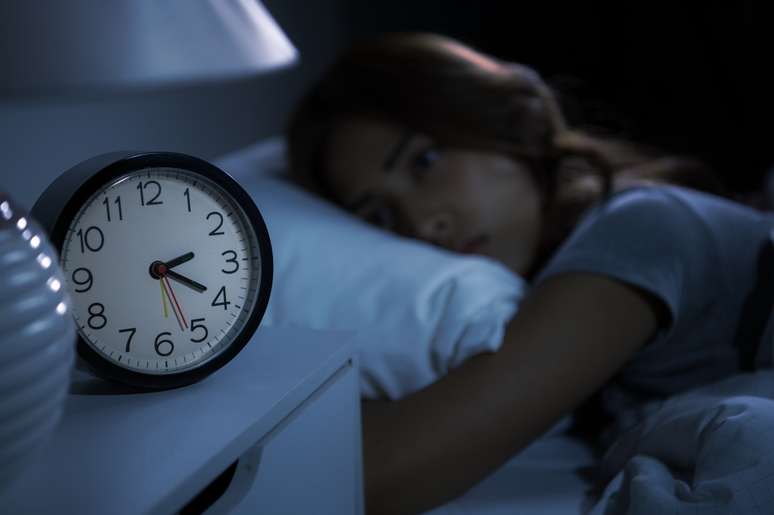Know the difference between habit and routine and the importance of both for a life with more quality moments
A hectic routine with few moments for oneself is the reality of most Brazilians, which is why including self-care as a daily activity is not just a desire or a need, but a challenge and, according to WHO, health it is a state of completeness well being social, physical and mental.
Deciding to invest more time in your well-being is the first step of a journey in search of balance, and start doing it small habit changes can make a difference for drastically change your lifestyle and take better care of yourself.
Do you know the difference between habit and routine?
Generally habit and routine they are used interchangeably, however they do not have the same meaning. While habit is an action performed repeatedly, i.e. a pattern of behavior that is part of daily life, routine is a time frame in which actions and activities are performed in an orderly manner on a daily basis.
An example: meditating immediately after waking up is a habit; meditating every day when you wake up and then having breakfast, getting ready and driving to work is a routine.
therefore, the habits exist within routines, however, a routine is not always made up only of habits. However, habits are key to establishing routines.
The importance of habit
The brain likes routines, after all, with them it spends less energy on thinking and performing tasks, since they have been assimilated and are performed in the well-known “automatic mode”. While some papers show it takes the brain just 21 days to adjust to a new habit, a study by University College London Posted in Psychology of the European journal pointed out that it takes 66 days to turn an activity into a habit.
Check out 8 oversights that can affect your well-being below:
Don’t have time for yourself
Daily obligations are met and timetables are strictly followed, e take care of yourself it might also seem like a selfish act, however self-care should be a primary element in the routine. Whenever possible, try to do what feels good and promotes your mental well-being: a movie night and a series, reading, going for a walk, etc.
Don’t take care of social health
Maintaining or creating healthy relationships and bonds with people, regardless of the degree of relationship (friends, family, colleagues), plays a central role in well-being. This happens because feeling part of a whole is the human essence, of social beings.
Social health is one of the pillars of well-being, and it is through relationships that people are recognized, loved and receive the necessary support. Find out more on the subject here.
Sedentary lifestyle
Regular physical activity brings physical and mental benefits, and according to the World Health Organization, adults must perform amidst 150 and 300 minutes of activity moderate physical activity per week.
Choose an exercise that has to do with your routine and your profile and dedicate yourself to it: when you get your body going, it increases the production of endorphins and serotonin, hormones responsible for the feeling of well-being.
do not practice meditation
Flexible, it can be done at any time and used for different purposes, such as sleeping better. With a few daily minutes of meditation it is possible to organize your thoughts and deal with anxiety.
Studies indicate that frequent meditators tend to enjoy the benefits of the practice more. You can perform quick meditations, even at work, and increase focus or reduce stress.
Want to include meditation in your routine? The Atma app has a special promotion valid until 05/31/2023: Atma Premium for R$ 1.90 for the first monthly fee.
not enough sleep
Sleeping badly can be a determining factor in the onset of stress and anxiety, elements with a high capacity to affect well-being. bad nights of sleep they can also impair cognitive abilities, i.e. they have a direct impact on the learning and memory process.
Avoid consuming stimulants at night and don’t leave for exercise so close to bedtime, the adrenaline released could disturb your rest.
See more sleep hygiene tips here.
Not caring about food
Having a balanced diet is key: consume fruits, vegetables, healthy fats and proteins, while also avoiding processed or ultra-processed foods, which can increase stress.
Don’t forget that everything needs balance, beware of restrictive diets or even depriving yourself too much. Seek professional help and monitor your diet regularly. A food is directly connected to well-being physical and mental.
No breaks between activities
In addition to an efficient way to manage energy throughout the day, breaks also help increase focus and concentration. Set clear goals for the day, like responding to “x” number of emails, and take short breaks between tasks to regain control and organize your thoughts.
This can help make your day more productive, giving you a sense of progress, as well as help reduce stress. You can apply mindfulness techniques at work.
you ask a lot of yourself
You also have to be kind to yourself, after all, taking care of every part of yourself is an act of self-care. Remember that any new habit takes time to adjust to, so be patient with yourself, enjoy every step of the way, and don’t give up.
With willpower and organization it is possible to establish a care routine and make well-being a daily goal.
Atma: meditation, sleep and well-being
Source: Terra
Ben Stock is a lifestyle journalist and author at Gossipify. He writes about topics such as health, wellness, travel, food and home decor. He provides practical advice and inspiration to improve well-being, keeps readers up to date with latest lifestyle news and trends, known for his engaging writing style, in-depth analysis and unique perspectives.









